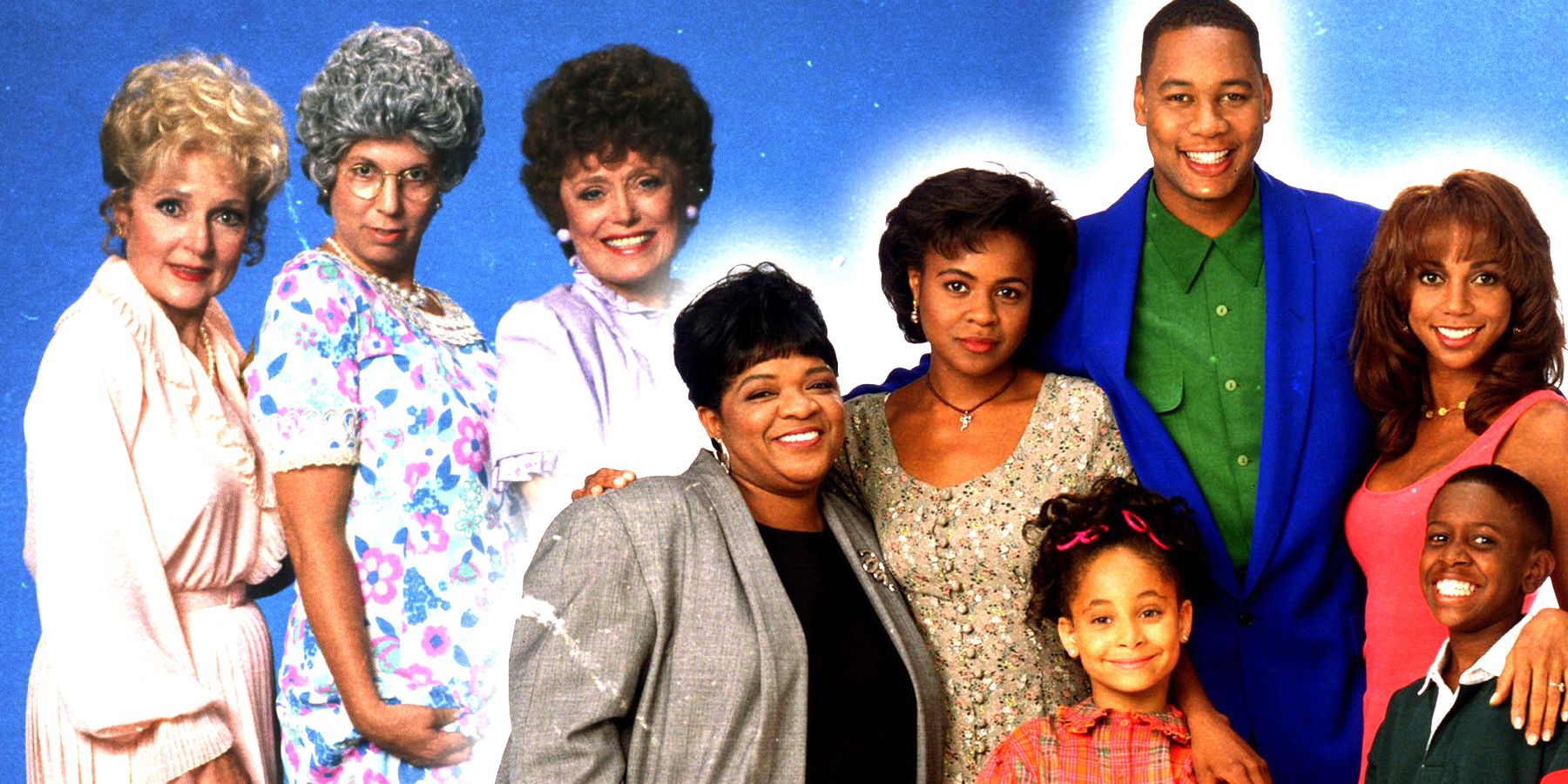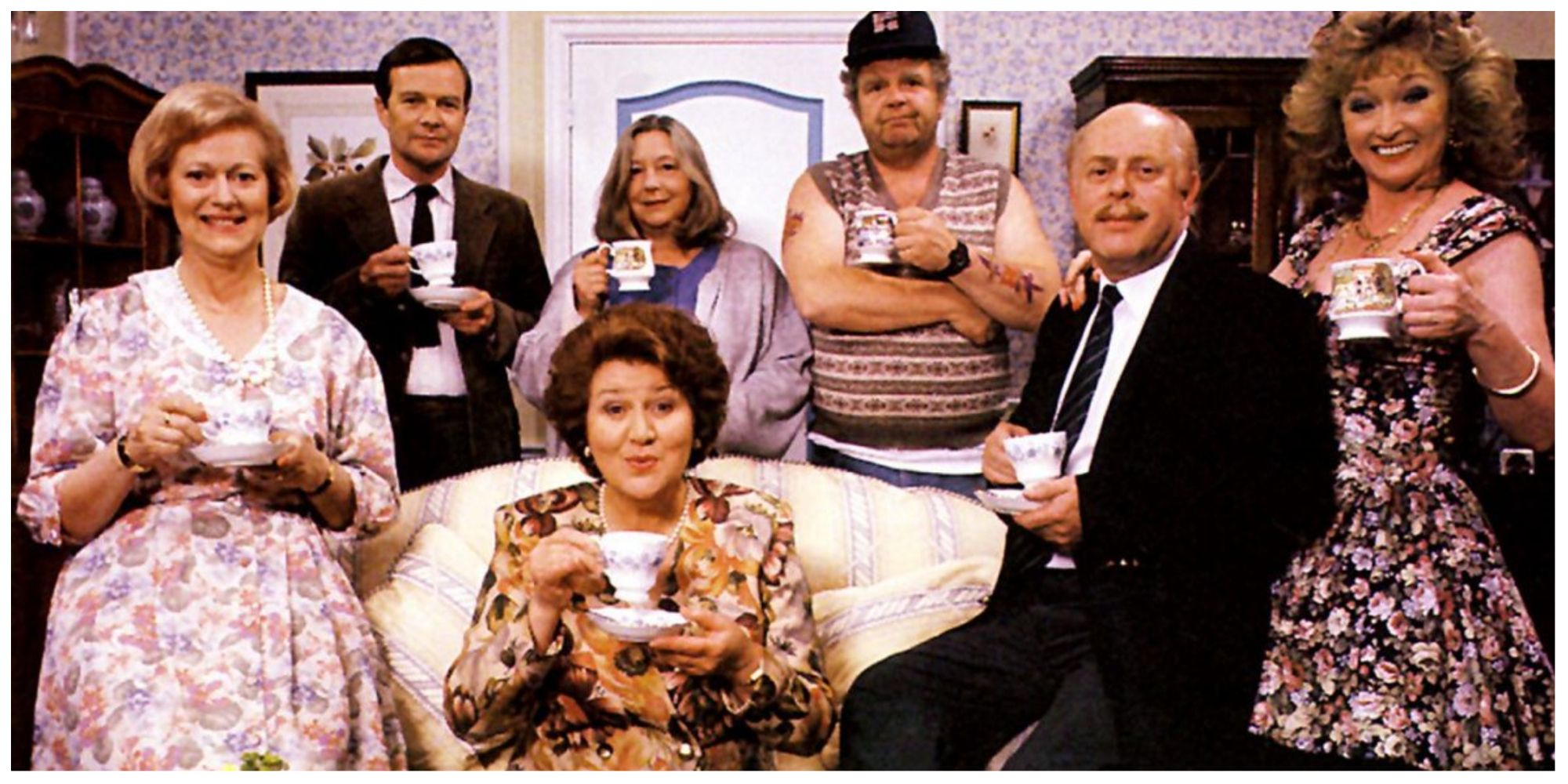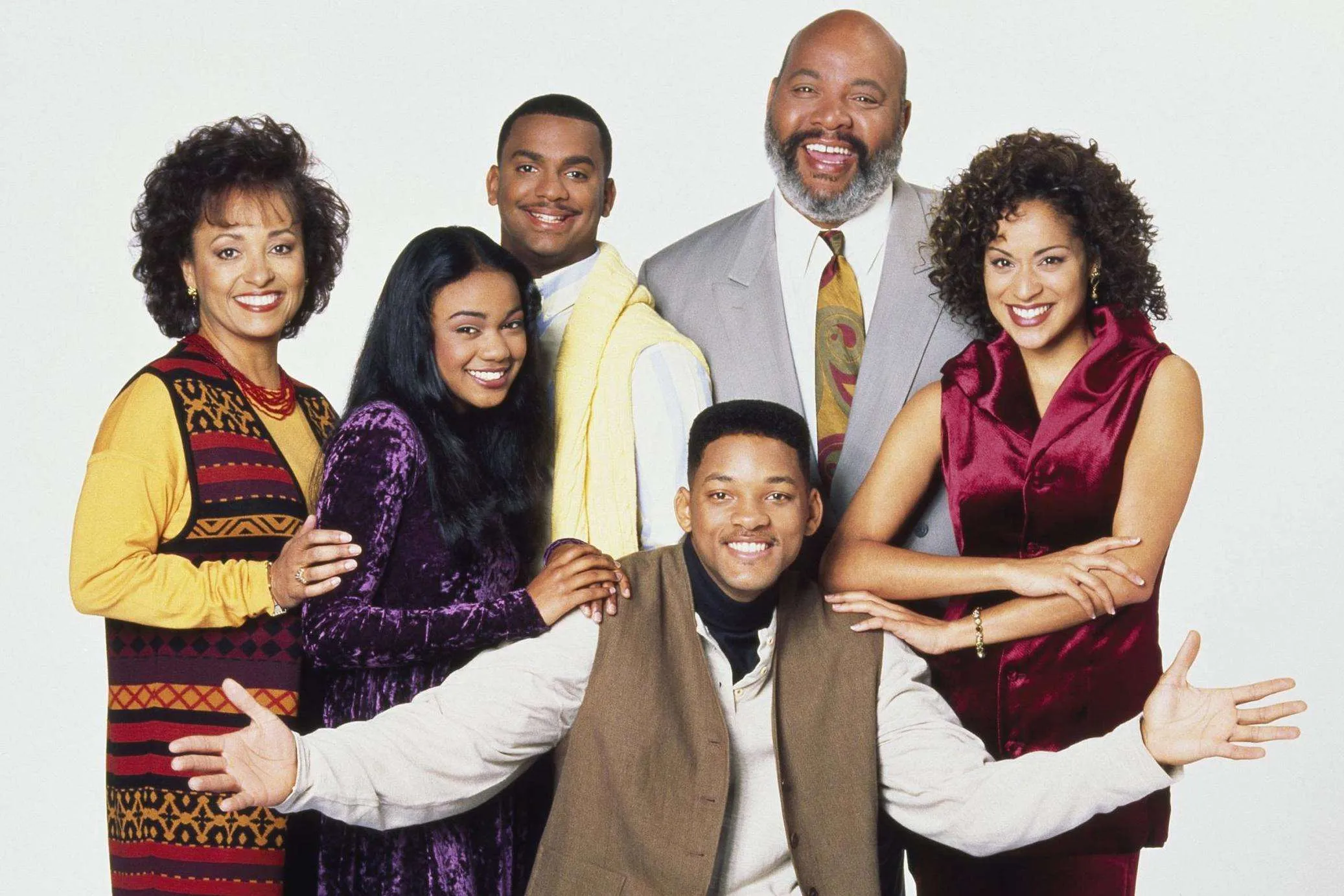The Golden Age Of Laughter: Unpacking 70s Sitcoms
The 1970s were a truly transformative period for television, especially for the sitcom genre. This decade saw a seismic shift in how comedy was presented, moving beyond simple domestic narratives to tackle complex societal issues with wit, courage, and an unprecedented level of realism. The impact of these groundbreaking shows, often referred to as the "golden era" of television comedy, continues to resonate, shaping the landscape of modern entertainment and proving that humor can indeed be a powerful vehicle for social change.
From the comfort of living rooms across America, families gathered to watch characters grapple with topics previously deemed off-limits for prime-time television. The 70s sitcoms were not just about laughs; they were a mirror reflecting the evolving cultural, political, and social fabric of the United States. They challenged norms, sparked conversations, and introduced audiences to diverse perspectives, cementing their place as some of the most influential and beloved shows in television history.
Table of Contents
- The Dawn of a New Era: Why 70s Sitcoms Mattered
- Groundbreaking Narratives: Addressing Societal Shifts
- Beyond the Laugh Track: Diverse Voices and Themes
- Iconic Characters and Memorable Moments
- The Enduring Appeal of 70s Sitcoms Today
- The Craft Behind the Comedy: Writing and Performance
- The Legacy: How 70s Sitcoms Shaped Television
- Rediscovering Hidden Gems: Sitcoms You Might Have Missed
The Dawn of a New Era: Why 70s Sitcoms Mattered
The 1970s was a period of immense change globally and within American society. The Vietnam War, the Civil Rights Movement, the women's liberation movement, and evolving family structures were all reshaping the national consciousness. Television, as the primary medium for mass communication and entertainment, began to reflect these shifts. Gone were the days of purely idealistic, saccharine family comedies. Instead, a new breed of sitcom emerged, unafraid to tackle the complexities of real life. These shows didn't just entertain; they provoked thought, challenged prejudices, and often, through laughter, helped audiences process the turbulent times. The best 70s sitcoms weren't just popular; they were culturally significant, sparking conversations at dinner tables and water coolers across the nation. This era truly redefined what a sitcom could be, proving that comedy could be both deeply funny and profoundly meaningful.Groundbreaking Narratives: Addressing Societal Shifts
The most defining characteristic of 70s sitcoms was their willingness to confront pressing societal issues head-on. Unlike their predecessors, these shows didn't shy away from controversial topics but rather embraced them as fodder for humor and discussion. This bold approach allowed them to resonate deeply with audiences who were navigating similar challenges in their own lives. The humor often stemmed from the clash of different viewpoints, forcing characters and viewers alike to confront their own biases and beliefs. This made the sitcoms of the 70s not just entertainment, but an integral part of the ongoing national dialogue.All in the Family: The Revolution Begins
When "All in the Family" premiered in 1971, it immediately revolutionized sitcom storytelling. The show centered around Archie Bunker, a bigoted, working-class patriarch, and his family, who represented a spectrum of evolving American viewpoints. The series fearlessly delved into subjects like racism, sexism, homosexuality, the Vietnam War, and economic struggles, often through heated, yet hilarious, arguments within the Bunker household. Wikipedia.org notes that "All in the Family" redefined the sitcom, and it was even named one of the “50 greatest TV shows of all time.” Its groundbreaking approach lay in presenting these uncomfortable truths without offering easy answers, allowing the audience to grapple with the issues alongside the characters. This show proved that comedy could be a powerful tool for social commentary, pushing the boundaries of what was acceptable on prime-time television and paving the way for future daring sitcoms.The Jeffersons: Moving on Up to Social Commentary
Spinning off from "All in the Family," "The Jeffersons" continued the tradition of bold social commentary, but from a different perspective. The show followed George and Louise Jefferson, an affluent African-American couple who "moved on up" to a deluxe apartment in the sky. While celebrating their success, the series deftly explored themes of class, race, and upward mobility in America. George's often-abrasive personality and his interactions with his white neighbors highlighted racial stereotypes and prejudices, both overt and subtle. "The Jeffersons" was one of the first successful sitcoms to feature a predominantly Black cast, offering a vital and often comedic look at the Black experience in the 1970s. Its humor stemmed from the characters' attempts to navigate their new social standing while confronting lingering racial tensions, making it another pivotal example of the impactful 70s sitcoms.Beyond the Laugh Track: Diverse Voices and Themes
The diversity of themes and voices in 70s sitcoms extended far beyond social issues. The decade saw shows exploring the complexities of professional life, the challenges of single womanhood, and even the absurdities of war. This breadth of content ensured that there was a sitcom for nearly every taste, each offering a unique lens through which to view the world. The era truly embraced experimentation, leading to a rich tapestry of comedic narratives that continue to be celebrated.M*A*S*H: Humor in the Face of War
While often categorized as a dramedy, "M*A*S*H" stands as one of the most brilliant and enduring sitcoms of the 70s. Set during the Korean War, the series followed the staff of a mobile army surgical hospital as they used humor to cope with the horrors of their daily lives. The show masterfully blended sharp wit and slapstick comedy with poignant moments of drama, highlighting the absurdity and tragedy of war. It tackled themes of mortality, patriotism, and the human cost of conflict with a sensitivity rarely seen in comedy. "M*A*S*H" broke the mold by showing that a sitcom could be both incredibly funny and deeply serious, earning critical acclaim and a massive, loyal following throughout its eleven-season run. Its ability to find laughter in the most dire circumstances solidified its place as a timeless classic.The Mary Tyler Moore Show: Redefining Womanhood
"The Mary Tyler Moore Show" was a groundbreaking series that redefined the portrayal of women on television. It centered on Mary Richards, a single, independent woman in her thirties who moves to Minneapolis to start a new life after a broken engagement. Mary secures a job at a local TV news station, navigating the challenges of her career and personal life. The show celebrated female independence, professional ambition, and the complexities of friendship. It portrayed Mary not as a wife or mother, but as a career woman making her own way in the world, a revolutionary concept for its time. With witty dialogue and a strong ensemble cast, "The Mary Tyler Moore Show" offered a refreshing and empowering perspective on modern womanhood, becoming a beloved classic among 70s sitcoms.Iconic Characters and Memorable Moments
The success of 70s sitcoms was not solely due to their groundbreaking themes but also to the unforgettable characters that populated their worlds. From Archie Bunker's bluster to Mary Richards's charming resilience, these characters became household names, embodying different facets of the American experience. Their quirks, catchphrases, and personal journeys resonated deeply with viewers, fostering a sense of familiarity and connection. The shows were filled with memorable moments – the arguments in the Bunker living room, the camaraderie in the M*A*S*H operating room, the opening credits of "The Mary Tyler Moore Show" with Mary's hat toss – that are etched into the collective memory of television history. These characters and scenes were crafted with such care and authenticity that they transcended the screen, becoming cultural touchstones that continue to be referenced and celebrated today.The Enduring Appeal of 70s Sitcoms Today
Decades after their original airing, the best 70s sitcoms continue to find new audiences and maintain their relevance. Comedies from the 70's offered humor that transcends time. Their witty dialogue and comedic performances elevated the art of filmmaking (or rather, television production), setting a high bar for subsequent generations of comedy. The issues they tackled – racism, sexism, class struggles, the search for identity – are, unfortunately, still pertinent in many ways today, making their social commentary surprisingly fresh. For those looking for a nostalgic TV trip, these 12 sitcoms from the ’70s are definitely worth revisiting. They offer a unique blend of historical insight and timeless entertainment, proving that truly great comedy never goes out of style. The fact that these shows are still discussed, re-watched, and studied speaks volumes about their lasting power and universal themes.The Craft Behind the Comedy: Writing and Performance
The brilliance of 70s sitcoms wasn't accidental; it was the result of exceptional writing and masterful performances. The writers of this era were unafraid to push boundaries, crafting sharp, intelligent dialogue that could be both uproariously funny and deeply poignant. They understood that effective comedy often comes from conflict and character-driven situations, rather than just isolated jokes. The actors, in turn, brought these complex characters to life with nuance and authenticity. Whether it was Carroll O'Connor's iconic portrayal of Archie Bunker, Alan Alda's empathetic Hawkeye Pierce, or Mary Tyler Moore's relatable Mary Richards, the performances were consistently top-tier. The chemistry among ensemble casts was palpable, creating believable relationships that anchored the comedic chaos. This commitment to high-quality craftsmanship, from script to screen, is a key reason why these 70s sitcoms remain so highly regarded.The Legacy: How 70s Sitcoms Shaped Television
The impact of 70s sitcoms on the television landscape cannot be overstated. They shattered boundaries and reshaped the TV landscape, proving that comedy could be intelligent, challenging, and deeply reflective of society. This era laid the groundwork for future shows to explore more complex themes, pushing the envelope of what was permissible and expected on network television. The success of shows like "All in the Family" demonstrated that audiences were ready for more mature and realistic humor, paving the way for a new generation of writers and creators. The influence of these pioneering series can be seen in countless modern comedies that continue to blend humor with social commentary, character development, and authentic human experiences. The 1970s truly were a golden era for television, setting a precedent for comedic excellence and cultural relevance that continues to inspire.Rediscovering Hidden Gems: Sitcoms You Might Have Missed
While shows like "All in the Family" and "M*A*S*H" are widely celebrated, the 70s produced a wealth of other fantastic sitcoms that might be less remembered but are equally deserving of attention. For instance, lists like "15 sitcoms from the ‘70s that few remember" by Olu (October 1, 2024) highlight many overlooked treasures. These shows often explored unique premises or showcased incredible talent that went on to achieve greater fame. Some offered quirky takes on everyday life, while others tackled niche subcultures with humor and insight. Diving into these less-known series can be a rewarding experience for any television enthusiast, offering fresh perspectives on the decade's comedic output. It's a chance to discover how truly diverse and innovative the 70s sitcoms were, beyond the usual top ten lists.Conclusion
The 1970s was a truly pivotal decade for the sitcom genre, ushering in an era of unprecedented realism, social commentary, and comedic brilliance. Shows like "The Jeffersons" and "All in the Family" are indeed among the best of the decade, but they represent just a fraction of the groundbreaking series that captured the spirit of the times and brought laughter into millions of homes. From tackling war and racial tensions to celebrating independent women, these 70s sitcoms redefined the boundaries of television comedy, proving that humor could be both entertaining and profoundly impactful. If you're looking for a nostalgic trip or simply want to explore the roots of modern comedy, we highly recommend revisiting these timeless classics. What are your favorite 70s sitcoms? Did we miss any hidden gems you think deserve more recognition? Share your thoughts in the comments below, and don't forget to explore our other articles on television history for more fascinating insights!- Where Does Courteney Cox Live
- Tv Show The Closer
- Jenna Bush Hager Book Club
- Penelope Cruz Parents
- Julie Newmar

10 Classic Sitcoms You Forgot Existed

10 Best British Sitcoms

15 Historical Black Sitcoms | Black Excellence